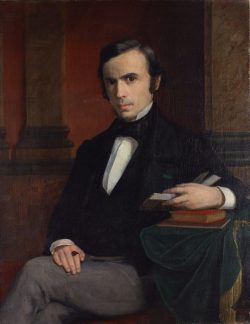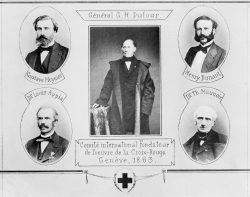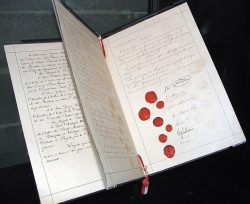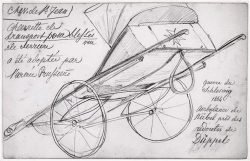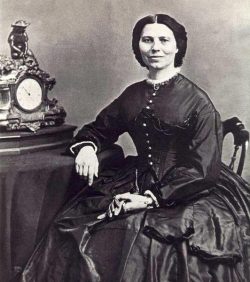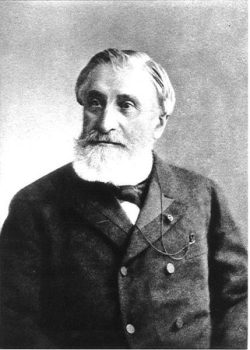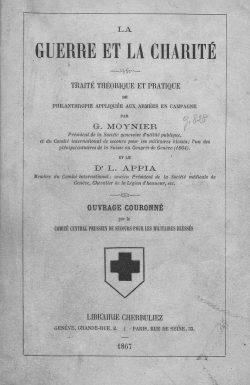Louis Appia (1818-1898) was
a pioneer of humanitarian aid
Louis Appia (1818-1898) was a philanthropic physician who decided to live in Geneva; on 13 February 1863 he became one of the five founder members of the International Committee for Relief to the Wounded soldiers (renamed the International Committee of the Red Cross in 1876), with Henri Dunant, Gustave Moynier, Guillaume-Henri Dufour and Théodore Maunoir. Doctor Louis Appia had a special position in this group as being one of the first voluntary field surgeons to help the wounded in the theatre of war and a faithful supporter of the institution.
Appia was one of the first surgeons to tend wounded soldiers
He was born in 1818 in Hanau (Germany) – his parents originally came from Piedmont (Italy). Appia studied medicine in Heidelberg and went on to practice in Frankfurt and later in Geneva. He was a philanthropic physician and spent time teaching the poor, helping to fight against alcoholism and teaching First Aid.
He worked as a specialist of First Aid in the 1848 revolutions of Paris and Frankfurt where he cared for the wounded. Qualified as a field surgeon, he left for Solferino in 1859. He visited hospitals in Lombardy, recorded the result of his medical observations and invented a method of transport for patients with broken bones. Later he wrote: “The idea of founding the Red Cross goes back to the war in Italy – this is when it became a practical reality.”
In fact, the first major step was taken towards the foundation of the Red Cross when he requested the donation of funds for those wounded in the Italian war in the Geneva Journal before his departure from Switzerland. On his return he published ‘The Ambulance Surgeon’ a treatise on gun-shot wounds. He advised Henri Dunant on medical issues when he wrote ‘A memory of Solferino’ in 1862.
In war-torn Europe this work established the ideals and founding principles of the future Red Cross. In Geneva, the ‘five’: Henry Dunant, Gustave Moynier, Guillaume-Henri Dufour, Théodore Maunoir and Louis Appia all determined that these principles should lead to action and that wounded soldiers would be better cared for in the future. On 13 February 1963, this Committee of Five created the International Committee for the Relief of the Wounded (which later became the International Red Cross Committee). The following October the first international conference was held. At the constitutive conference Louis Appia put forward the suggestion that medical personnel should wear a distinctive white armband for their protection.
Less than a year later, on 22 August 1864, twelve states signed the first Geneva convention ‘for the improvement of the condition of the wounded in armies in the field’.
The humanitarian physician on the battlefield
Shortly after the foundation of the ICRC, Louis Appia and Charles Van der Velde became the first ICRC delegates to be sent onto the battlefield. They were sent to Schleswig in the Danish-Prussian war (1864). They were greeted by Marshal Wrangel, a major in the Prussian army who said “The armband you are wearing tells us enough, we know you are here for the welfare of all the soldiers who are fighting in this war”.
His experience in this war contributed to a report on the initial action of the Institution which Louis Appia handed in to the ICRC the day before the diplomatic conference began in August 1864.
In 1866, he set off once more as a delegate of the Milan Red Cross movement with his brother George, a pastor in Torre Pellice. He was in an ambulance which came to the aid of the wounded soldiers of Garibaldi’s army in Bezecca, in the valley of Ticerno. Three years later he set off again to the battlefield of the Franco-Prussian war in 1870.
Louis Appia published medical books which were often the direct result of his experiences on the battlefield and became a well-known expert on humanitarian military medicine.
Soon after the foundation of the ICRC, he argued for the extension of the Institution’s support to civil populations during wartime, despite opposition from his colleagues.
He was a long-serving and conscientious member of the Institution
When Henry Dunant resigned, Louis Appia took over the position of Secretary, which he held until 1870.
He participated in every Red Cross conference, remaining a member of the International Committee for 35 years. Appia sought the support of major politicians and military leaders for the ICRC and the Geneva Convention.
To this end he went to Cairo in 1872 and in 1873 to convince the Vice-Roy Ismail Pacha to adhere to the Convention. He planned to open an ophthalmological hospital and to give advice to the hygiene services of the Egyptian army but instead he had to return to Geneva to support his family.
He exchanged letters with Clara Barton for several years. She was also an ardent humanitarian and later founded the American Red Cross. Appia and Gustave Moynier, president of the ICRC at the time gave her advice and support in this undertaking.
The importance of his Christian faith
Louis Appia’s deep faith was the inspiration for his humanitarian mission; his father and brothers were pastors, he worshipped regularly in the Chapel of the Oratoire in Geneva, was a member of the Evangelical Society and the Bible Society. In the short work called “The repentance of the final hour” the accent is on Christianity rather than medical science in a story where a young man repents of his sins before his imminent death.
In many of his works he insisted on the capacity of humanitarian aid to bring comfort and relief to the suffering and bewildered people he was treating in military hospitals and areas of great poverty. An example of this is “La guerre et la charité” which he wrote with Gustave Moynier in 1867.
Although one of the basic rules of the International Red Cross was religious neutrality, this did not prevent him from acting more or less as a missionary. In the leaflet “Christmas spent in an ambulance” (1880) he wrote about handing out copies of the New Testament in Russian to wounded soldiers in Montenegro.
In 1893, he wrote the following words, thirty years after the Committee of Five in Geneva had called on the world to give its fraternal support to wounded soldiers on the battlefield: ”It’s not at the moment of action that religion can have much effect on people. You have to be in God’s presence yourself in order to remain calm, which is essential, to have a real spirit of service, to give practical help and emotional support. (….) Do not forget, in battle life is hectic, there are many pressing needs at once – death comes often and unawares: all you can do to help is to give a brief word of encouragement or to say a short prayer”.
It is because he was in daily contact with so much suffering that Louis Appia’s life was unique; amongst the Committee of Five he was the only one to have never ceased ministering on the battlefield as a surgeon, emergency doctor and pioneer logistician; later he became the ambassador of a humanitarian cause which soon convinced many in Europe and later worldwide of its immense value to humanity.
Louis Appia (1818-1898) was
a pioneer of humanitarian aid
Comité international de la Croix-Rouge (CICR), Avenue de la Paix, Genève, Suisse
Bibliography
- Sites
- Documents
- Books
- Articles
Associated notes
-
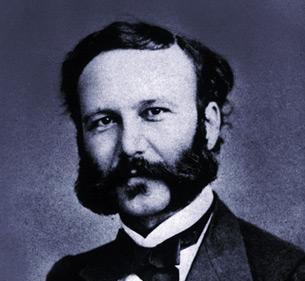
Henri Dunant (1828-1910)
Founder of the Red Cross -
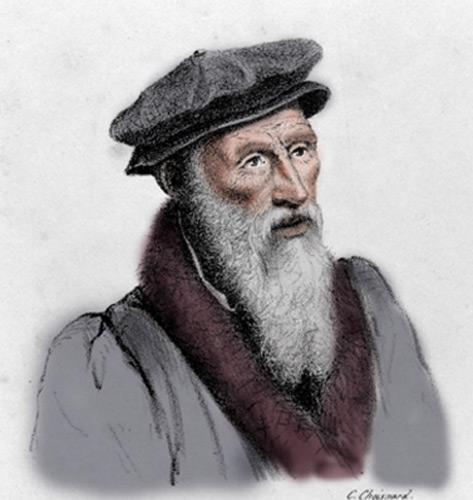
Protestantism in Switzerland
Reformed protestantism is deeply rooted in Switzerland because of Calvin, who lived in Geneva and Zwingli, who lived in Zurich. The Swiss Confederation goes back to the XIIth century ; it...

